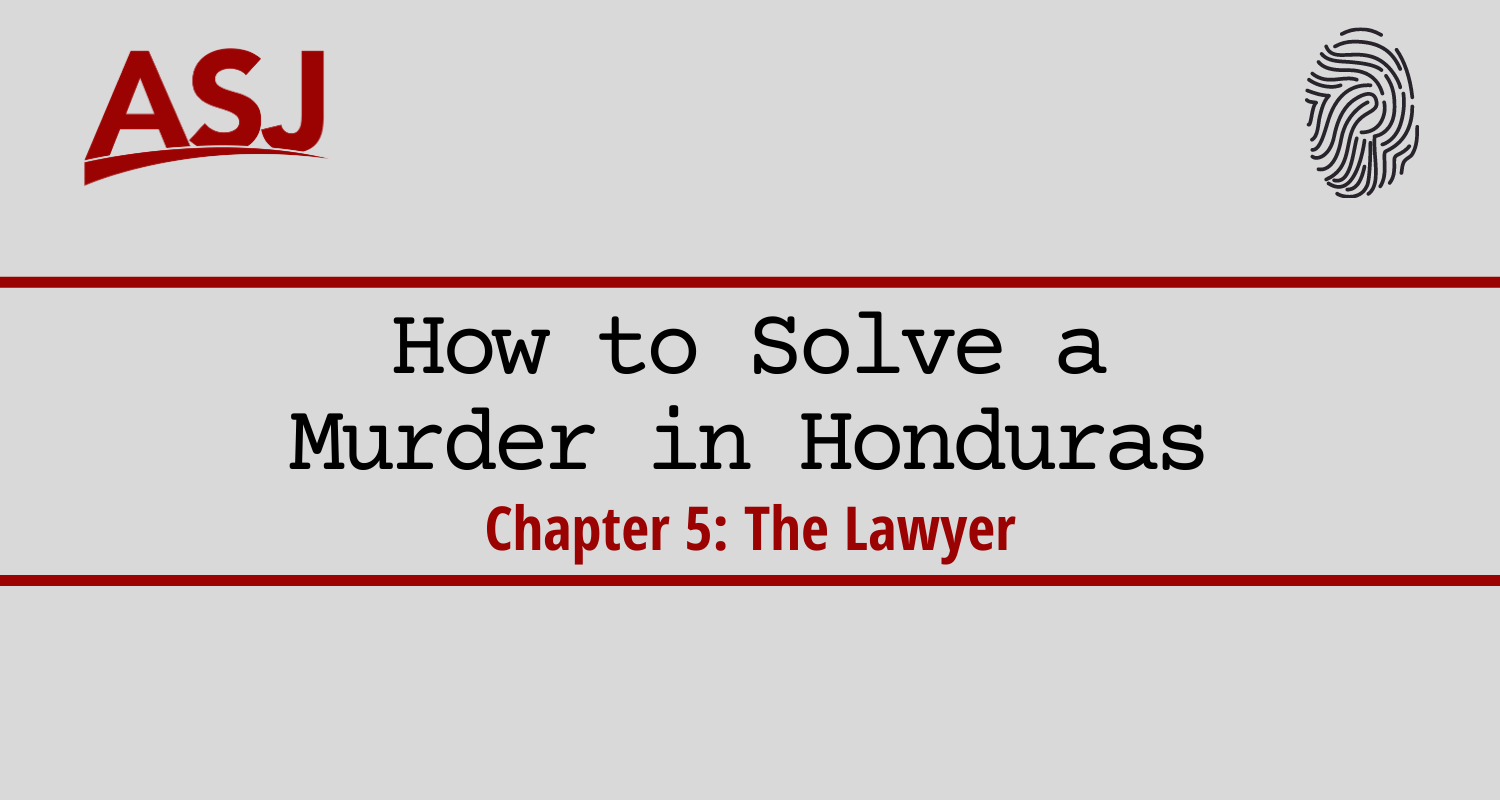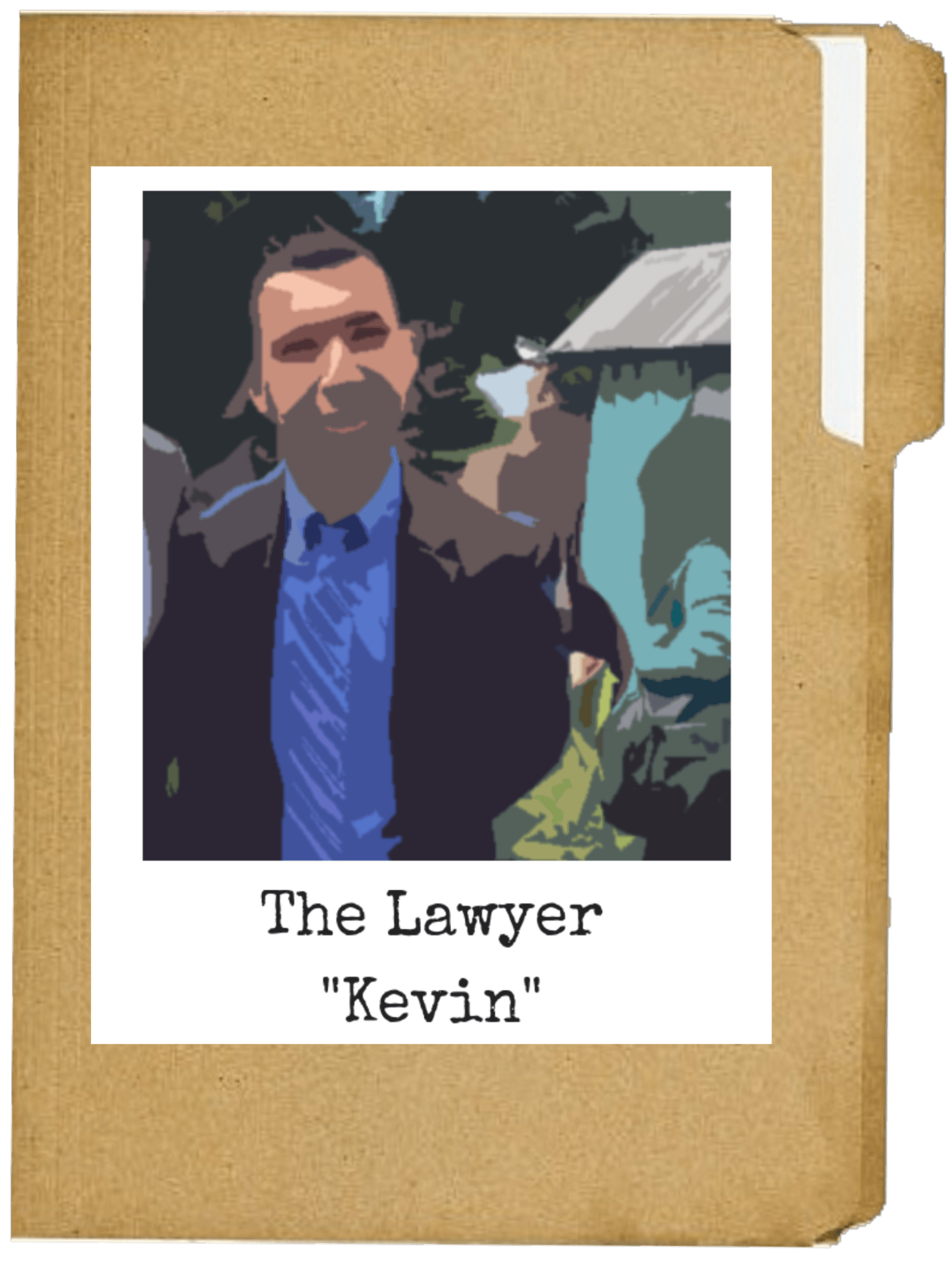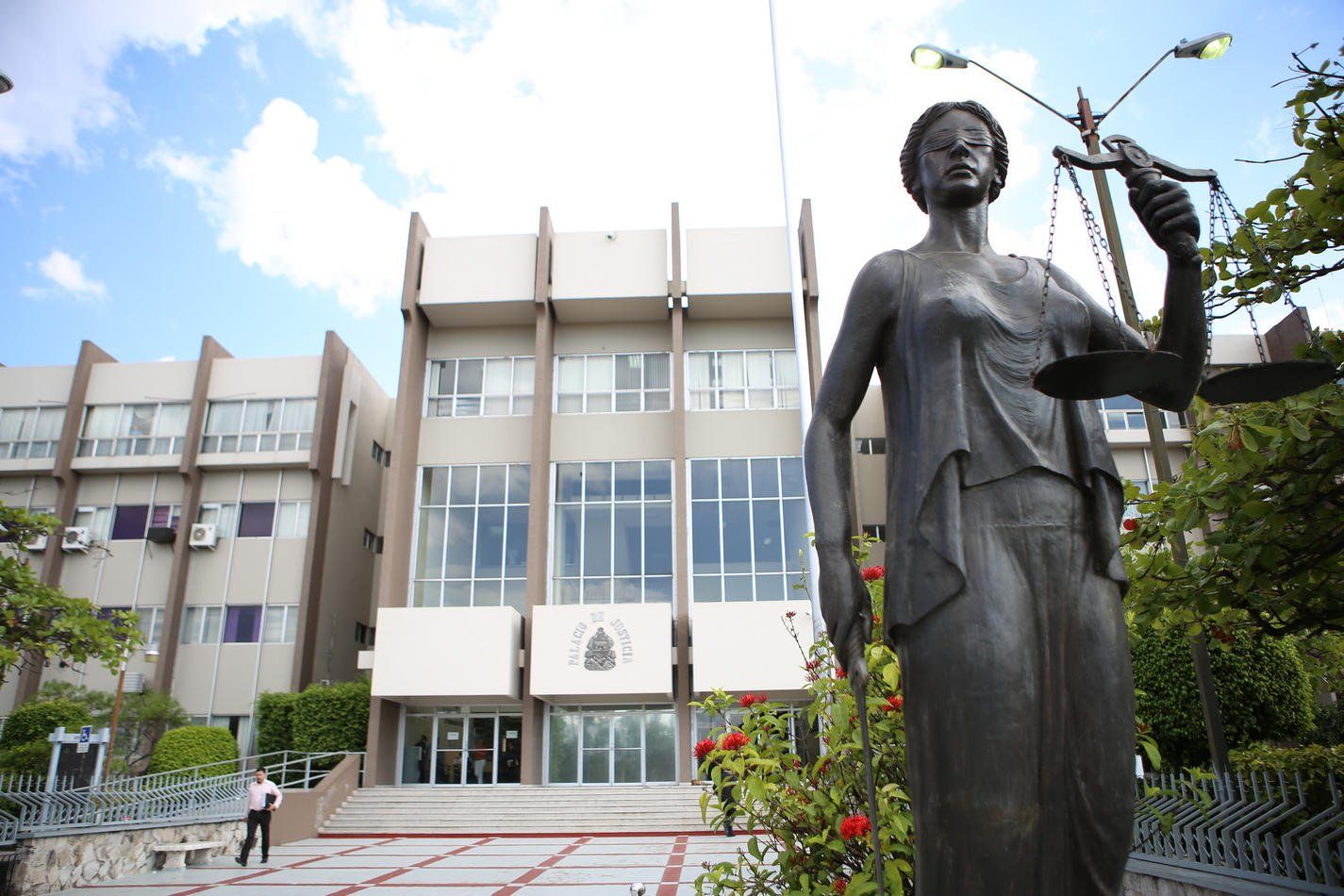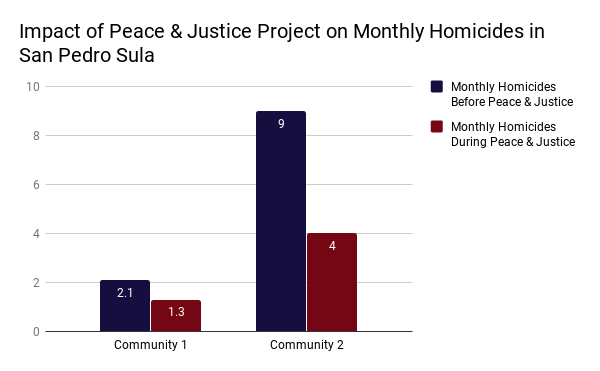Early in the morning, before dawn has tinted the skies of Honduras’ capital city, Kevin*, an ASJ lawyer, prepares for another day of work. He’s headed to the third day of trial for the murder of Sonia, a young business owner. The case is difficult, but Kevin is committed to securing justice for Honduran families whose loved ones have been taken away from them. He reminds himself as he leaves home, “It’s not just one more case. This is a family in mourning. This is a family who suffered an injustice.”
September 15, 2018
Chapter 5: Lawyers Take Evidence and Build a Case
ASJ (formerly known as AJS) lawyers represent vulnerable victims pro bono, and sometimes advocate for years as cases slowly move forward. In this way, they achieve victories in individual cases, but also show both citizens and officials that no case is too difficult to achieve justice.
As a lawyer, Kevin plays an essential role in solving murders and bringing justice. Unfortunately, Honduras’ courts operate far above capacity, and overworked, undercompensated judges and technical officers frequently dismiss cases because of technicalities. As a result, only 5% of murders in Honduras are ever solved. Yet, Kevin perseveres and “commits to make the system work for [victims and their families].”
Kevin saw the importance of this legal persistence in the emblematic investigation into the murder of Sonia. He remembers first hearing her story from a friend:
Sonia*, an entrepreneurial woman in her thirties, ran a business from her home cooking and delivering food. One day in 2012, Sonia was talking to her husband on the phone when she heard the doorbell ring. “That’s strange, it’s Alonso,” she said, referring to an ex-employee she had recently let go for his bad work ethic. Her husband heard Sonia walk to the front door to greet her old employee, and then the phone call dropped. After trying to call back several times, he had a neighbor look in.
The scene he found was horrifying. Alonso had murdered Sonia, who was four months pregnant, and her two other employees, Norma and María. Then he drove away.
Sonia’s family hired private lawyers and thought the case should have been straightforward. Sonia’s husband had heard Alonso’s voice over the phone, Alonso’s recent firing gave him motive, and there was physical evidence.
But the system failed. Alonso was not convicted and soon released from jail. After an appeal, in 2017, Honduras’ Supreme Court authorized the case to be re-opened and Kevin’s Peace and Justice team took on the case.
Kevin believed there was a litany of errors in the initial case, “something deeply broken in the courts themselves that didn’t allow for a conviction,” he said. “It’s a chain – a poorly-managed crime scene, poor investigation, contaminated evidence, and the forensic medicine officials didn’t have a strong enough case during the trial.”
Kevin focused on finding uncontaminated scientific evidence, knowing it would be key to securing justice for Sonia’s family this time around. This was an innovative step for a lawyer to take in a country where courts rely almost exclusively on confessions and as a result, rarely achieve convictions. But Kevin’s plans were threatened when, the director of forensic medicine said, “all the people working under me, even the doctor who did the original autopsy, no longer work here.” Also missing were a detective who had unearthed important details of the case, and two other witnesses.
Kevin refused to be deterred. He drove dozens of hours across the country and went door to door in dangerous neighborhoods to find people with connections to the case to convince them to help.
Before and during trial, Kevin oversaw each part of the judicial system to make sure it did its job correctly. With his deep knowledge of the Honduran courts, he advised the forensic team and helped train the government’s prosecution team. His support went down to the smallest details. He laughs, “If they needed a USB or a cable, we had one. So there would be no pretext for them not to do their work.”
Last year, five years after Sonia’s murder, the courts sentenced Alonso to 80 years in prison. Kevin reflects, “It’s good to feel the satisfaction of knowing a family saw justice.”
This is just one of 295 cases Kevin and his colleagues have guided through Tegucigalpa’s courts system since 2013. ASJ has achieved twice the national average conviction rate in these cases, bringing hope to hundreds of families.
Kevin continues to be a dedicated, compassionate advocate for victims, remembering that, “Our work is this – to speak on victims’ behalf and to transmit to the authorities what they have to say and what they feel.”























